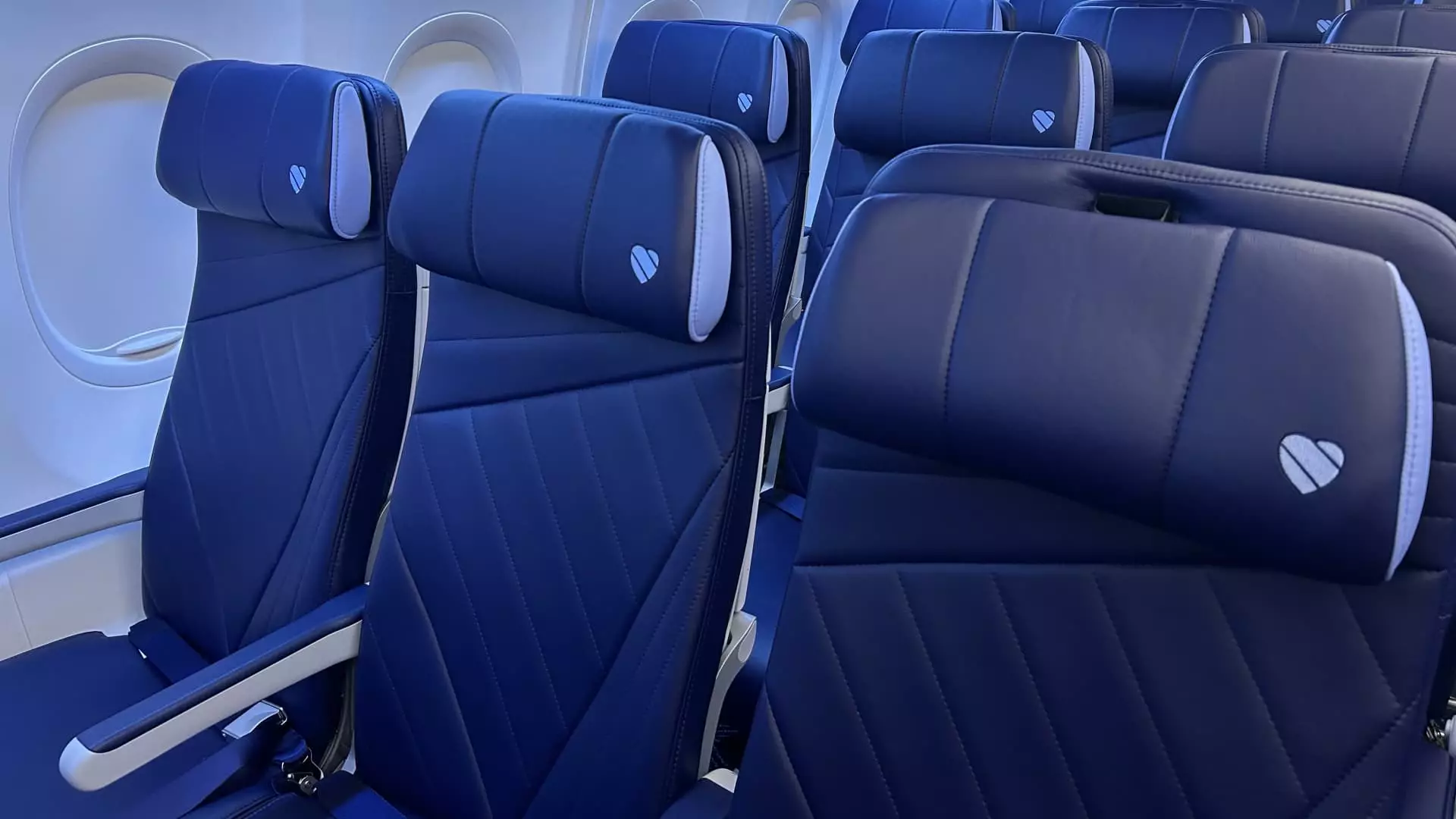In a move that many perceive as a betrayal of the once-friendly airline industry, Southwest Airlines has started selling assigned seats for the first time in its storied history. For decades, Southwest championed the principles of simplicity, affordability, and customer-centric service—offering open seating, free checked bags, and no hidden fees. Now, it’s succumbing to the relentless pressures of revenue maximization that have transformed the airline landscape into a profit-driven minefield. The introduction of seat fees, varying by route and seat class, epitomizes how the airline industry has shifted from prioritizing traveler loyalty to maximizing shareholder value at their expense.
This change signifies not an evolution but a capitulation—Southwest’s core identity is being sacrificed on the altar of revenue. An industry once rooted in transparent pricing now tantalizes customers with an illusion of choice, while subtly extracting more dollars at every turn. Instead of offering an honest fare, airlines are deploying the age-old tactic of hidden fees, knowing consumers are forced into an arms race of add-ons to secure a comfortable or convenient flight.
The Erosion of Consumer Trust and Fair Pricing
What’s fundamentally troubling about this new fee rollout is how it erodes the trust consumers once felt. Southwest’s openness about its all-inclusive, no-hidden-cost model was a defining feature—something that differentiated it from other airlines. Now, with seat prices ranging from an extra $41 for a middle seat to nearly $100 for extra legroom, the transparency is gone, replaced by ambiguous and fluctuating costs tailored to route, timing, and seat preference.
This approach disproportionately disadvantages families and budget-conscious travelers who, already stretched thin, find their anticipated vacations exponentially more expensive. What was once a predictable, simple booking has become a calculator of hidden fees that can add hundreds of dollars to a trip—costs that can easily turn a leisurely vacation into a financial burden. Such practices tend to favor wealthier travelers and frequent flyer elites, who are often given perks or exemptions, creating an uneven playing field that undermines the principle of fair access.
From an ethical standpoint, this shift raises serious questions. Airlines are essentially shifting from service providers to profit engines, capitalizing on the anxiety and uncertainty of travelers. This compromises their social contract with customers—trust that they’ll receive what they paid for without surprise charges. Instead, consumers are now coerced into paying for every convenience, turning what was once a straightforward transaction into a complex, often frustrating puzzle.
The Impact on Competition and Market Dynamics
Southwest’s move is emblematic of broader trends within the industry, where revenue from ancillary fees now surpasses traditional ticket sales. Major players are increasingly reliant on these supplementaries, from baggage fees to seat selection charges, which has reshaped competitive dynamics. Airlines like United and Delta, with their own assortment of fees and amenities, now compete fiercely on a battlefield of add-ons rather than fare prices alone.
This commodification of air travel distorts the market—pushing consumers to compare not just tickets but every little extra they might need or want, often making it impossible to gauge the true cost of a flight upfront. The practice fosters a race for the highest hidden charges, encouraging airlines to compete on who can nickel-and-dime consumers the most, rather than offering genuine value.
Furthermore, the reliance on ancillary revenues raises concerns about consumer welfare and aviation ethics. Are airlines truly serving the needs of the average traveler, or are they catering to the whims of profit-driven investors? The eviction of open seating and free checked bags in favor of a la carte pricing models signifies a betrayal of airline traditions rooted in service and accessibility. It shifts the focus from providing reliable, affordable transportation to a complex, stratified system that increasingly favors the affluent.
The Power Imbalance and the Illusion of Choice
While airlines advertise seat selection as a mere upgrade, it is, in essence, a tool to squeeze more revenue out of the traveler. Elite frequent flyers and credit cardholders are given a veneer of privilege—priority access, waived fees, reserved preferred seats—yet the average passenger faces mounting costs, often without transparency or fairness.
The flexibility and fairness once associated with flying are diminishing, replaced by a system that forces consumers to anticipate dozens of potential charges before even stepping on the plane. The supposed “choice” of selecting a preferred or extra-legroom seat is, in many ways, an illusion—an empty promise of control while the airline maximizes their earnings.
This scenario exemplifies a broader societal issue: the widening gap between those who can afford to pay for convenience and comfort and those who cannot. It undermines the democratic ideal of equal access and further entrenches systemic inequalities. The airline industry’s new approach to pricing is less about serving the public interest and more about preying on the naive or unprepared traveler.
An Industry at a Moral Crossroads
As the industry evolves into a revenue-intensive marketplace, it faces a moral crossroads. The initial promise of affordable, accessible air travel has been overshadowed by the pursuit of profit, often justified by shareholder demands. However, this strategy risks long-term damage: a decline in brand loyalty, consumer resentment, and regulatory scrutiny.
Southwest’s decision to sell assigned seats may temporarily boost revenue, but it damages the very foundation of customer trust. It signals a departure from the airline’s long-standing reputation for fairness and simplicity—traits that historically set it apart amidst a crowded market. If airlines continue down this path without regard for consumer welfare, they risk alienating their most loyal customers and igniting a broader backlash against the corporate greed that now defines so much of the industry.
In a time when corporate responsibility and consumer rights should be prioritized, the airline industry seems to be doubling down on a model that fundamentally undermines fairness and transparency. Whether this will ultimately be sustainable remains to be seen, but one thing is clear: the era of honest, straightforward flying is rapidly disappearing.

